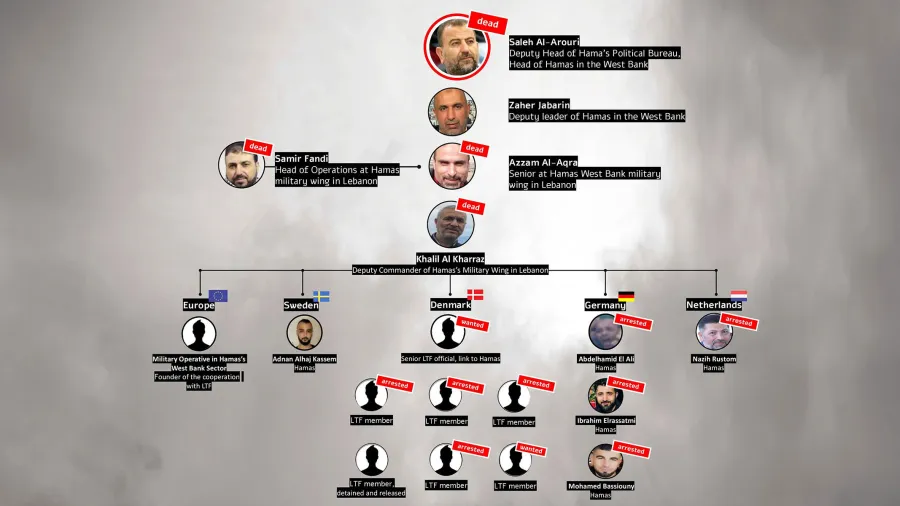Historically, Hamas focused its attacks exclusively within the areas it deemed “Occupied Palestine”—Judea, Samaria, Gaza Strip, and Israel.
This approach, distinct from the PLO, aimed to avoid tarnishing the movement’s image on the global stage.
However, recent developments indicate a significant departure from this stance.
Following the devastating October 7 massacre near the Gaza Strip, Hamas has escalated its efforts, becoming a transnational terrorist threat.
The Mossad and the Shin Bet disclosed on January 13 the organization’s global activities since October 7, spanning the Middle East, Africa, and Europe.
The key figures orchestrating Hamas’ worldwide terrorist activities were Saleh al-Arouri, Azzam Akra, and Samir Fandi, all eliminated by Israel on January 2 in Beirut.
Notably, Khalil Haraz, the deputy commander of the military wing in Lebanon, played a role in establishing terrorist networks in Denmark, the Netherlands, and Germany before his death in a November 2 airstrike.
Collaborating with the outlawed organization LTF in Denmark, Hamas attempted to attack the Israeli embassy in Sweden.
However, intelligence from the Shin Bet and the Mossad thwarted the plot.
Denmark and Germany subsequently conducted extensive arrests, leading to ongoing legal proceedings against the suspects.
While Hamas lacks a dedicated operational and intelligence infrastructure abroad, it leverages support from Hezbollah, Iran, and the global “Muslim Brotherhood” movement.
The organization openly acknowledges its shift towards global attacks and is in the process of establishing operational and intelligence networks in multiple countries to target Israeli and Jewish sites.
The recent surge in anti-Semitism in Europe and the United States since the Gaza war has been viewed favorably by Hamas.
The movement considers the International Court of Justice hearing on South Africa’s complaint against Israel for genocide as legitimizing terrorism against Israel and Jews abroad.
In response to this evolving threat, numerous countries, particularly in Europe, have intensified intelligence cooperation with the Israeli Mossad to preempt potential terrorist attacks by Iran, Hezbollah, and Hamas on their soil.
Israel, resolute in its stance, is anticipated to take proactive measures, potentially involving the Mossad’s intervention on European soil to counteract Hamas’ terrorist activities.
The global landscape is witnessing a paradigm shift as Hamas redefines its strategy, presenting new challenges for international security and necessitating collaborative efforts to address this emerging threat.




